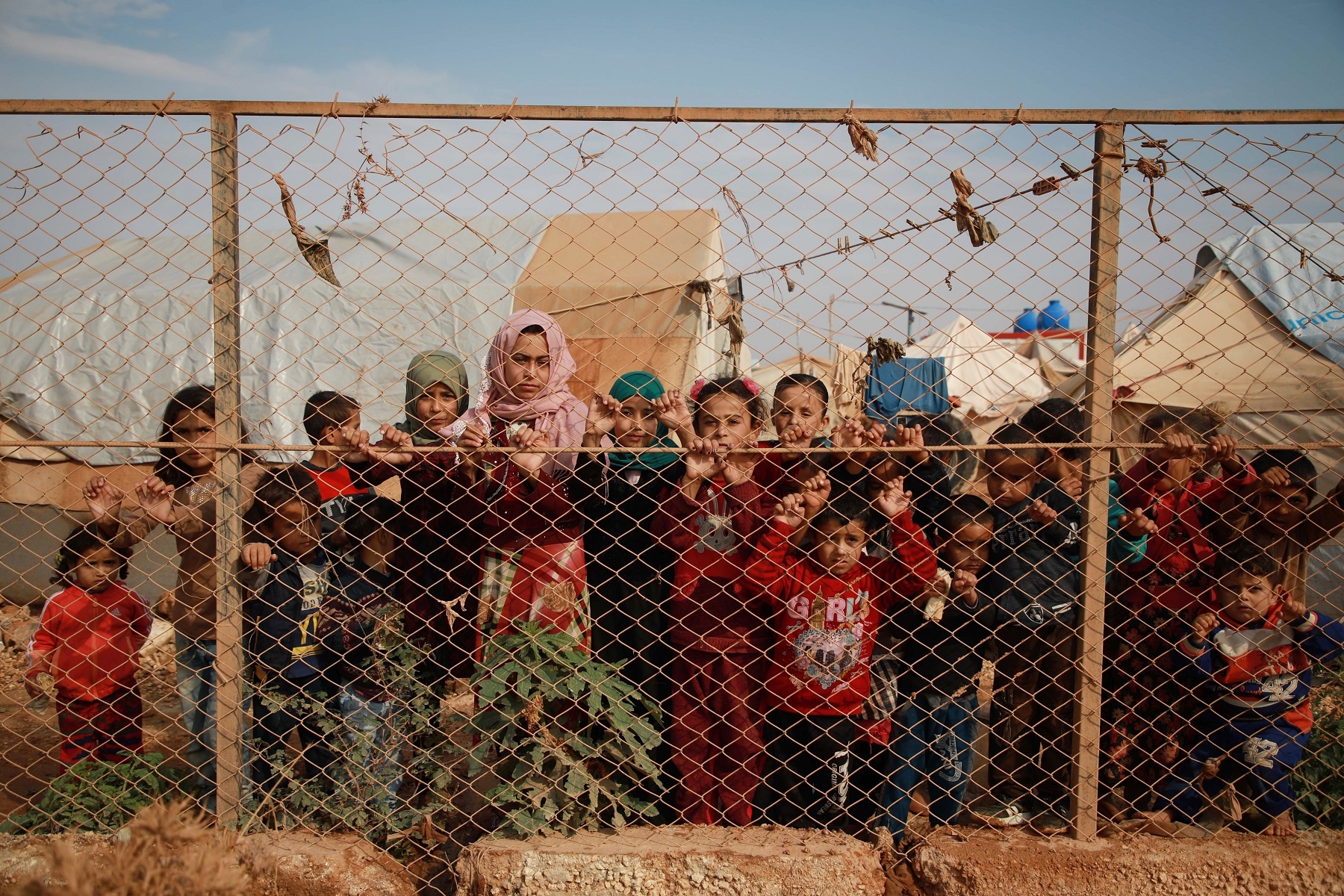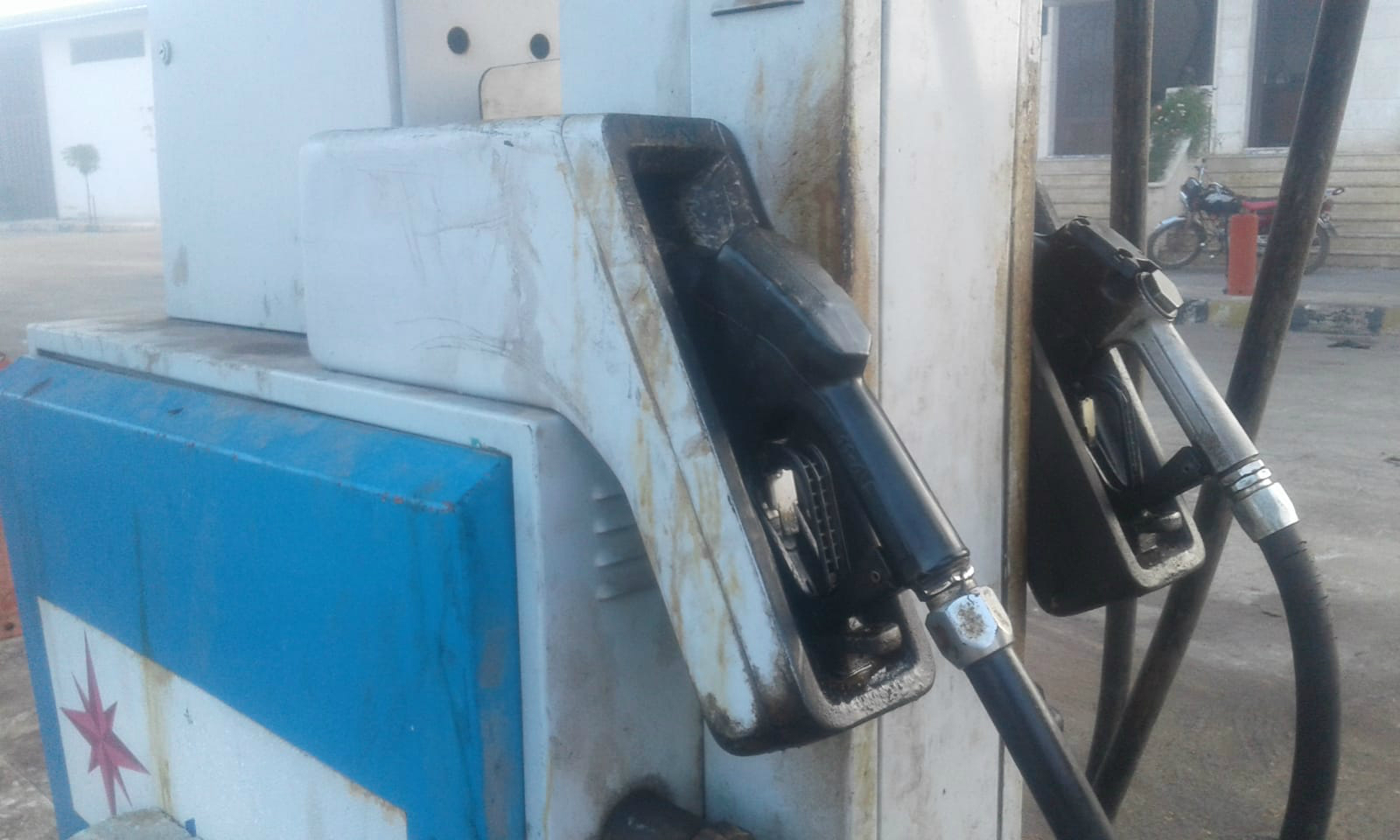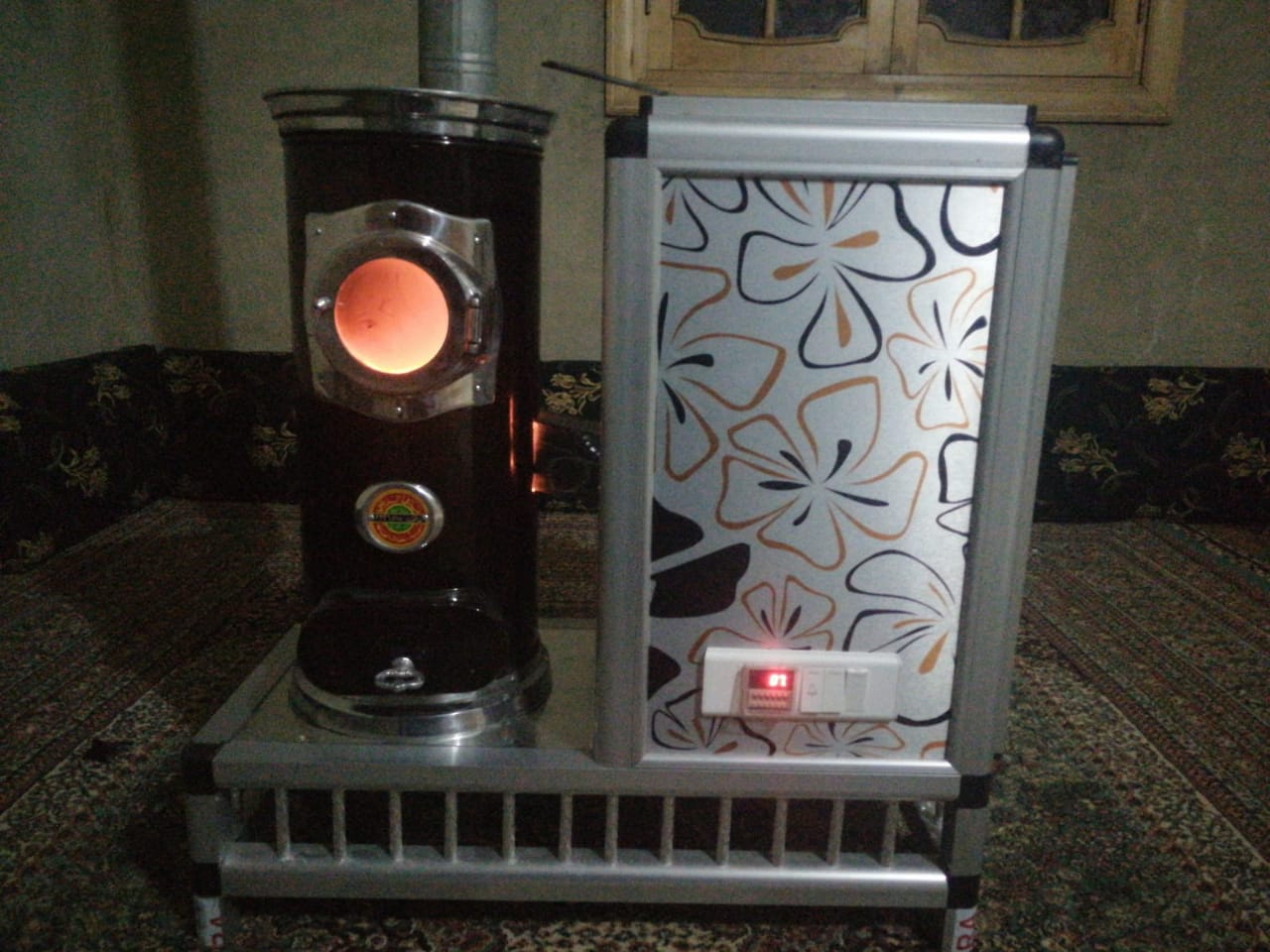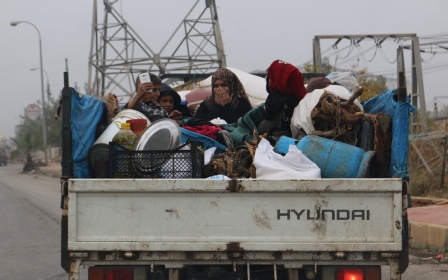Idlib facing harsh winter as Syrian offensive chokes off fuel supplies

Badr could drive the 500km stretch of rolling desert between the oil wells in Hasakah province and rebel-held Idlib in his sleep.
Each month, for the past six years, he’s hauled crude oil by the truckload to oil refineries in northwestern Syria. Then came the Turkish operation.
Since routing Islamic State from northeast Syria in 2017, the Kurdish-led Syrian Democratic Forces (SDF) militia has controlled the country’s main oil fields.
'If the Syrian or Russian regime forces are on the road, no one can cross. You’ll be arrested or killed'
- Badr, crude oil haulier
But the arrival of Syrian government forces in the city of Manbij - the result of an October deal between Damascus and the SDF to fend off Turkish troops - has severed the section of the M4 highway previously used to deliver fuel supplies to Idlib province.
“If the Syrian or Russian regime forces are on the road, no one can cross. You’ll be arrested or killed,” said Badr, who requested Middle East Eye use his first name only due to security concerns.
New MEE newsletter: Jerusalem Dispatch
Sign up to get the latest insights and analysis on Israel-Palestine, alongside Turkey Unpacked and other MEE newsletters
Unable to continue his work transporting fuel to Idlib, Badr is borrowing money from relatives and hoping to sell his tanker truck for spare cash.
Since he and his fellow drivers stopped delivering crude oil to Idlib province in October, the price of fuel has skyrocketed, putting additional strain on a part of Syria already plagued with rampant poverty and unemployment.
Plunging oil production
According to oil analyst Abu Amin al-Shami, the price of refined fuels has increased by about 140 percent since Turkey launched its operation against Kurdish People's Protection Units (YPG) fighters, who comprise the main part of the SDF, on 9 October.
The price of one litre of gasoline in Idlib has risen from an average 500 Syrian lira per litre to as much as 800, said Shami, who is based in Aleppo and runs an oil news channel on the messenger service Telegram.
“For more than five years, Idlib had been content with domestic oil. Compared to Syrian regime areas, it experienced excellent oil stability,” said Shami. “Now, Idlib faces a humanitarian crisis.”
In the past eight-plus years of war, Syrian oil production has plunged.
Whereas in 2008, the country was putting out 406,000 barrels per day (bpd), the oil fields in Kurdish areas east of the Euphrates River are currently producing a modest 30,000 to 60,000 bpd, estimates Chatham House associate fellow David Butter.
“In terms of the needs within Syria, especially for people like those in rebel areas who don’t have access to outside markets, those relatively small quantities are actually a lifesaver,” Butter said.
Without fuel supplies coming from northeastern Syria, one gasoline and diesel seller in the town of Haas, who has asked not to be named out of fear for his safety, has resorted to selling firewood instead.
According to him, the only sellers still making a significant profit are those working for Watad Petroleum Company, which holds a monopoly on fuel in Idlib and is believed to be affiliated with the militant group in control of the area, Hayat Tahrir al-Sham (HTS).
“Fuel now only comes from Turkey, but the quantity is not enough to meet the needs of the region here.”
Burning clothes to keep warm
Idlib province is home to roughly three million civilians, more than half of whom are displaced from battles elsewhere in Syria.
A Russian-backed bombing campaign launched this summer in Idlib has further strained the local economy.
Hundreds of thousands have been forced to flee their homes since late April, and the Syrian government is now threatening a renewed offensive on the opposition stronghold.
The rise in fuel prices coincides with the depreciation of the Syrian lira, which has plummeted due in part to the financial crisis next door in Lebanon.
Its value, which stood at 47 lira to the US dollar before the uprising in 2011, this week was traded at more than 900 lira.
Meanwhile, falling temperatures have increased demand for mazout, a heavy fuel widely used to heat homes.
Unable to afford this fuel or the cost of firewood, some Idlib residents have taken to burning clothes and other household items to keep warm this winter.
In the town of Saraqeb, Hussein Ahmed and his family are heating their house using a special oven that burns discarded pistachio shells, which costs about them $150 per month.
“It’s still so expensive because you can’t recycle the shells or use them again,” Ahmed says.
'At any moment we could stop working'
Hospitals in the northwestern enclave - still reeling from a Russian-backed government assault on healthcare infrastructure - are also feeling the effects of the fuel shortages.
The Idlib Health Directorate has warned that a lack of available and affordable fuel for generators threatens to put Idlib’s last remaining hospitals out of service.
The HTS-affiliated government has reduced the amount of available electricity from eight hours per day to three
The surge in fuel prices comes as the self-proclaimed Salvation Government has raised taxes on goods and services, and introduced new austerity measures, which prompted days of protests by fed-up residents last month.
The HTS-affiliated government has reduced the amount of available electricity from eight hours per day to three.
Meanwhile, a bag of bread, a staple in every household, costs more and weighs less than it did two months ago.
For Jamil Dughaim, a taxi driver in northern Idlib countryside, the increase in fuel prices, combined with the devalued lira, has nearly cost him his job.
Dughaim says he is spending twice as much to fill up his car with gas and is charging customers more to compensate.
As gas stations increasingly run out of petrol, Dughaim worries he and Idlib’s other taxi drivers will have no choice but to suspend their services.
“If the fuel runs out, at any moment we could stop working,” he said.
Middle East Eye delivers independent and unrivalled coverage and analysis of the Middle East, North Africa and beyond. To learn more about republishing this content and the associated fees, please fill out this form. More about MEE can be found here.






